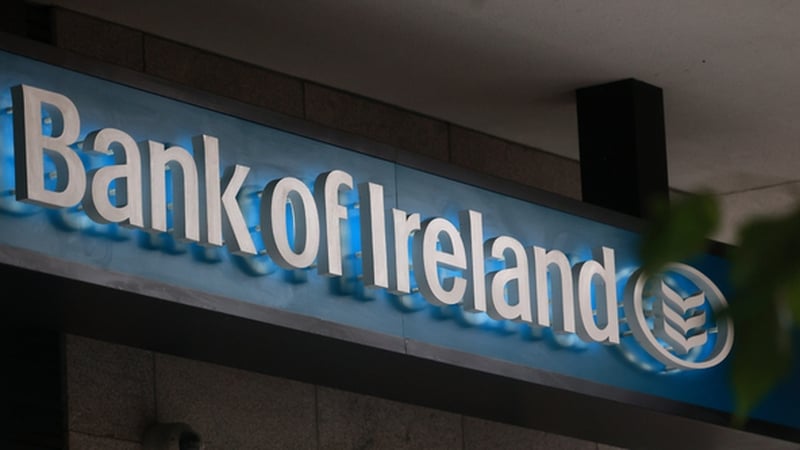Updated / Friday, 1 Aug 2025 20:27

An EU wide bank stress test has found that the country’s two largest banks currently hold enough capital to withstand an economic shock.
The European Banking Authority exercise was conducted on a sample of 64 banks from 17 EU and EEA countries, covering 75% of EU banking sector assets.
The results indicate that the largest EU banks would be resilient to a severe hypothetical stress scenario over a three-year period from 2025 to 2027.
It assumes a simultaneous and prolonged recession across the EU and other advanced economies, driven by severe global disruptions.
Under the scenario, the disruptions are caused by escalating geopolitical tension, particularly in the Middle East, and a rise in protectionist trade policies worldwide, including tariffs.
It concluded AIB’s transitional Common Equity Tier 1 (CET1) capital ratio – an important measure of a bank’s financial strength – would stand at 13.4%.
While the CET1 capital ratio for Bank of Ireland would stand at 13.9% under the adverse stress test scenario.
Both are above the average 12% CET1 capital ratio, which is up from the avearge 10.4% in the 2023 exercise.
AIB’s Chief Financial Officer, Donal Galvin, said the bank’s result of 13.4% fully loaded CET1 in the EBA’s hypothetical adverse scenario “demonstrates our high capital base and capital resilience in the EBA adverse scenario”.
“AIB continues to be very well-capitalised with a CET1 ratio of 16.4% (1) at H1 2025 which remains substantially in excess of regulatory requirements,” he added.

The EBA said the strong performance of the EU banks in the 2025 stress test “is reassuring, nonetheless, this should not lead to complacency among banks or supervisors”.
The Director of Banking & Payments Supervision at the Central Bank, Domhnall Cullinan said: “On balance, the scenario in use for the EU area is broadly aligned with the 2023 exercise but the impact of the stress test is milder than the results from that exercise.
“This is mainly due to banks entering the exercise with stronger profitability, and stable asset quality,” he added.
Mr Cullinan said despite prevailing uncertainty, “the benefits of resilience built up in recent years are evident, with banks having sufficient capital to absorb the impact of the severe scenario.”
“Given the uncertainty, there remains a need to maintain and continue to build resilience, both financial and non-financial.”
More stories on





